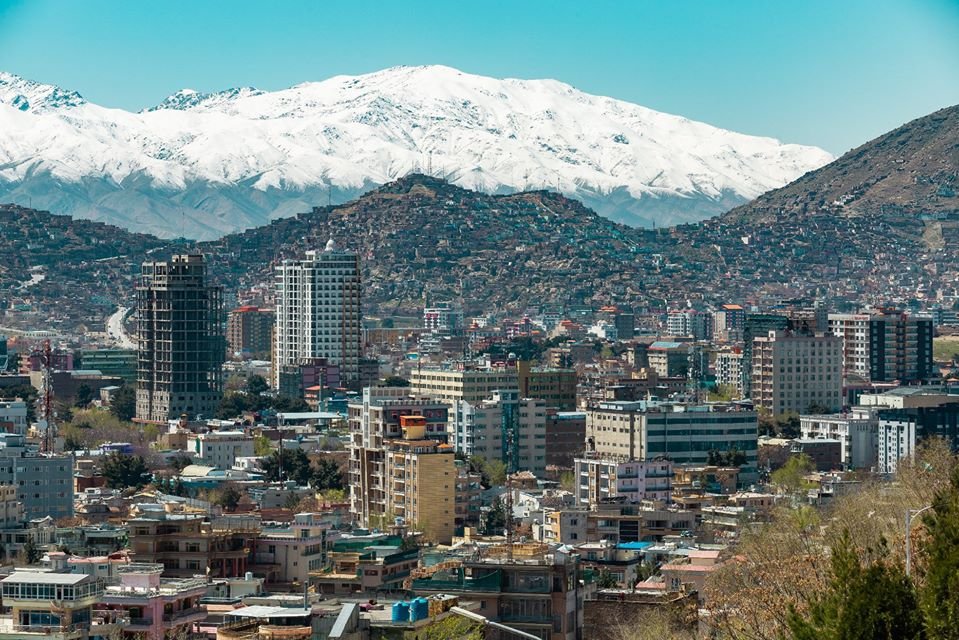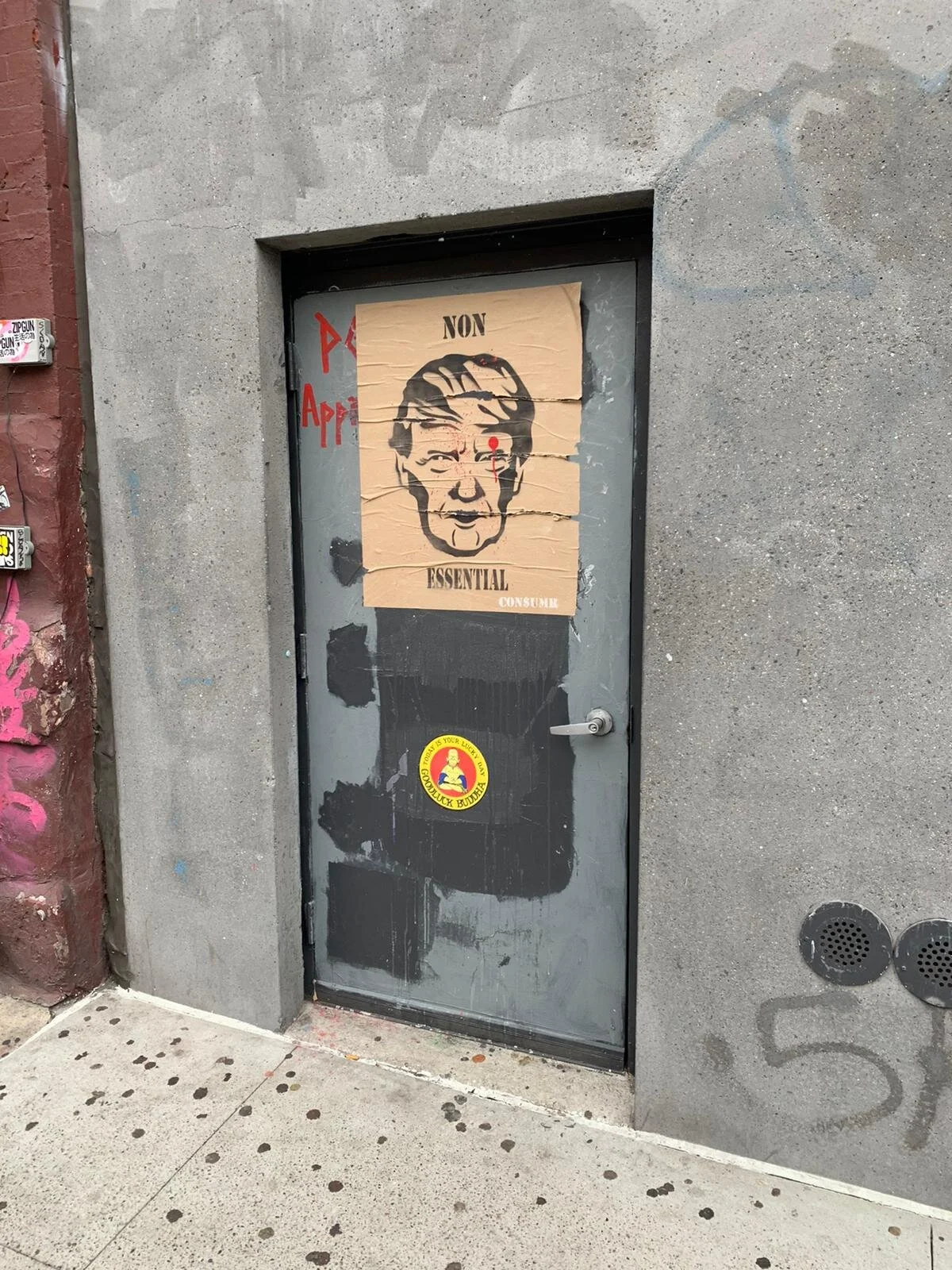Amidst a rapidly changing urban landscape in the tourism hub of Venice, author Neal E. Robbins examines the city's economic, environmental, and social future.
Read MoreOn December 10, 2021, the Oxford Urbanists hosted a panel event on contemporary urban-development dynamics in Afghanistan. Shahrukh Wani, an Economist with the International Growth Centre at Oxford’s Blavatnik School of Government, moderated the discussion. In conversation were Sana Safi, a journalist with the BBC World Service, Srinivasa Popuri of UN-Habitat, and Erol Yayboke of the Center for Strategic and International Studies (CSIS). The conversation was recorded and is available to watch in full below.
Read MoreNature-based Solutions (NbS), a novel term for green and natural infrastructures, are spreading all over the world. But being a concept coined in the so-called “developed” countries, it has the historical potential to arrive in the so-called “developing” countries impregnated with traces of colonization. This article outlines decolonial thinking that can assist Latin American practitioners in better applying these structures, taking into account local aspects as well as dialectical approaches that can help to better perceive and incorporate the interdependence intrinsic to nature into designing and planning urban green infrastructure.
Read MoreThe authors outline a Community Land Trust in Mumbai, in which the most significant component is the concept of Dual Ownership—of land separate from the building. Owners of buildings on land are provided with the exclusive use of their land. They own the buildings but not the land. The building’s buyer may be an individual homeowner, a cooperative housing corporation, a non-profit organization or for-profit entity. Land becomes a single separate entity collectively owned by a trust. Land will always be owned by the trust and may never be transferred to the building owner. Therefore, no concept of freehold may exist. The land can be leased to any entity. This approach de-links ownership of land and houses, taking the land off the market and keeping housing affordable.
Read MoreIn another important original essay Dr Kanchan Gandhi further examines housing inequalities in Zirakpur. Drawing on her first-hand research of communities in this rapidly growing city, Dr Gandhi spells out the massive housing quality fragmentation that is occurring in this rapidly expanding Indian city. As cities around the world begin to plot their return to their levels of pre-COVID growth and urbanisation, Dr Gandhi’s essay is a powerful reminder of the critical role that housing plays in the right to the city.
Read MoreIn this thought-provoking original essay New York city resident - and current University of Oxford MSc (Sustainable Urban Development) student - Josef Goodman explores governance and the American city through the prism of the Covid-19 pandemic.
Read MoreIn this article Tunde Ajia examines the infrastructure challenges and opportunities arising in Nigeria during a period of unprecedented growth and economic expansion. Tunde undertakes a detailed review of different infrastructure sectors identifying particular sectoral challenges and common cross-cutting themes. Tunde also notes the particular strain that the COVID-19 pandemic is currently placing on Nigeria’s infrastructure. Tunde concludes by calling for an urgent re-examination of a wider range of infrastructure delivery models, including public-private partnerships, in order to leverage developments in innovation and learn from experiences elsewhere in the world.
Read MoreTo enter Zirakpur, in the state of Punjab, India, is to be greeted by uneven landscapes of both native rural settlements and gated housing societies sitting side by side in the same city. This article investigates these sharp contrasts of urban transformation and how they have been created through Zirakpur’s recent graduation from village to city
Read MoreIn this original article Professor Michael Keith, Director of the University of Oxford’s PEAK Urban Research programme, examines the relationship between technological innovation and urban transformations. Using examples of the defibrillator, the Apple Watch and Uber, Professor Keith’s article reinforces the multiplicity of city change experiences that arise as we balance sharing of the urban commons with a desire to individually prosper.
Read MoreWith trust in many democratic institutions waning and increasing concentrations of power stifling the democratic process, we need to re-think how we set up and maintain our governance structures to ensure inclusiveness, equality, and efficiency. This article proposes three options cities and municipal authorities should consider as ways to improve equity, distribution of resources, and service delivery to their denizens.
Read MoreCircular economy thinking has become a central part of the global sustainability discourse, particularly in the urban environment. Recently this has included the emergence of ‘circular economy hubs’, but relatively little has been written about the form and nature of these hubs. This original article, by University of Oxford post-graduate students involved in ‘Six Degrees - Oxford Consultancy for Sustainability’, investigates the concept of ‘circular economy hubs’ further and their potential to design for a circular economy transition.
Read MoreThis essay by Dr Binti Singh focusses on the so-called ‘Southern turn’ in urbanism studies by investigating second and third tier cities in India. Dr Singh examines the influence of Government ‘smart cities’ policy, technology-driven consumerism and popular media on the development of these cities. In a context of extremely rapid urbanisation in India, Dr Singh identifies the paradox that as these cities become more identifiable in Indian urban life, they also risk becoming more homogenous. Dr Singh opens the door to a new type of theoretical framework for this type of city – a framework that celebrates individuality and uniqueness as an essential character of rapidly urbanising place.
Read MoreIn this article Emilio Caja and Barbara Russo investigate conceptions of space in Naples. The article draws on historical literature, as well as the authors’ contemporary field research in Naples, to examine the shaping of space in the city over time.
The authors identify how emerging conceptions of space can change engagement and political representation, presenting new opportunities (and challenges) for the city. In the context of nascent civil movements around the world (including protests in Hong Kong and ongoing global climate strikes), the article provides insights into how urban space can be a tool for communication and engagement.
Read MoreIn this article, Oenone Kubie investigates factors influencing how children’s play was perceived during the ‘Progressive Era’. Kubie’s article investigates changing approaches to the treatment of ‘play’ in the city and, ultimately, the rise of the ‘playground’ as city infrastructure.
Read MoreThe practice of urban design, and its role in creating cities, is a contested space. In this original article Judith Ryser examines tensions between professional disciplines in the creation and delivery of urban design in European cities. Drawing on the work of Francis Tibbalds, Ryser uses three key city issues - climate change, ICT and public participation - to identify ways through these tensions and new opportunities for the urban design profession. Ryser tests conceptions of urban design in the shaping of cities, and identifies new ways for the profession to help achieve sustainable urban development.
Read MoreDevelopment economists use household survey data to measure living standards across the world, but reliable data for cities in the global south is hard to come by. This article addresses three challenges to collecting data in cities – measurement, missing people, and money – as well as steps that can be taken in the design, implementation, and analysis of survey data to try and address them.
Read MoreIn conversation with Dr Andreza A. de Souza Santos and Dr Markus Hochmüller, both of the University of Oxford’s Latin America Centre, following the recent publication of Dr de Souza Santos’ article “Trading time and space: Grassroots negotiations in a Brazilian mining district” in Ethnography 2019, 0(0) 1–23
Read MoreAn interview with Alex Vasudevan, author of The Autonomous City: A History of Urban Squatting and Associate Professor in Human Geography at the University of Oxford, on the subjects of Squatting & Citizenship, Spatio-Temporality, Commons-Enclosure, and Ecology & Ontology.
Read MoreThe City of Edmonton, Canada, is currently a finalist in the Smart Cities Challenge, launched by the Government of Canada in 2017. This article looks at some of the City of Edmonton’s key priorities in this process and how they used the opportunity to focus on the health and well-being of immigrants and newcomers.
Read MoreThe results of Bogotá’s 2018 ender to renew its BRT fleet illustrate how Colombian cities are struggling to electricity their public transportation systems. Nevertheless, such electrification is essential, and there are a number of concrete financial and regulatory steps government can take to facilitate the transition.
Read More
















